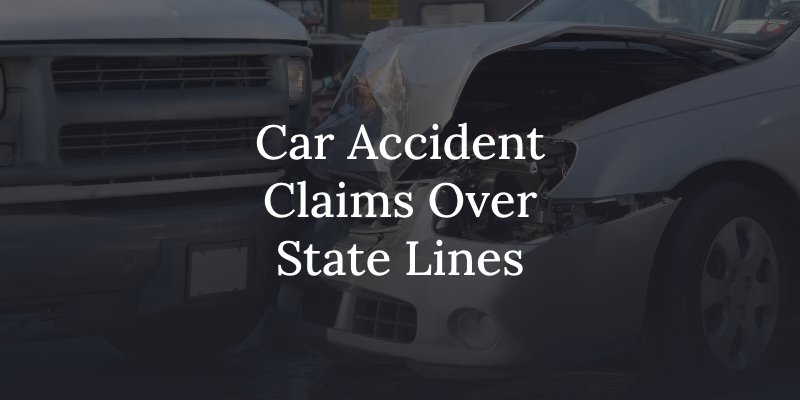No one expects a road trip to end in an accident, but every year thousands of accidents occur to motorists visiting or driving through other states on vacations, family visits, or business travel. While navigating the nation’s highways, there’s little evidence—other than “welcome” signs—to notify drivers that they’ve crossed a state line, yet different states have different laws, including very different insurance systems for car accident claims. For instance, many states, like Missouri, have fault-based insurance systems that allow a car accident survivor to file a claim against a negligent driver who caused an accident. Other states, like Florida and New Jersey, have no-fault insurance systems requiring car accident victims to file claims against their own personal injury protection (PIP) auto insurance regardless of who caused the accident. No one prepares for a car accident, but when one happens while a driver is visiting another state, additional concerns arise.

What State’s Laws Are In Place When an Accident Occurs Involving a Driver From a Different State?
After an accident happens in one state but involves a driver from another state, typically, the laws in the state where the accident happened apply to both drivers. The state’s laws regulate how car accident survivors handle their claims for damages such as property damage, medical expenses, and lost earnings. If both drivers were from states other than the one where the accident occurred—not uncommon on interstate highways—then the state laws of the at-fault driver’s home state apply to the claim. Examples include the following:
- A Florida driver has an accident while driving through Missouri. Because the accident occurred in Missouri, the state’s fault-based comparative negligence laws apply. The Florida driver’s PIP insurance policy will not cover their damages. Instead, the driver has to file a claim against the Missouri driver’s auto insurance if the Missouri driver caused the accident. On the other hand, if the Florida driver caused the accident, the Missouri driver can file a claim for damages against the Florida driver’s policy. If both drivers contributed to the fault for the accident, each can recover a portion of their damages minus their percentage of fault under Missouri’s comparative negligence system.
- If a Missouri driver has an accident in New Jersey, the state’s no-fault insurance system applies and both drivers must file claims against their own insurance companies except in cases of catastrophic injuries, in which case they may file lawsuits against an at-fault party
- If an accident happens in Georgia, but one driver is from Missouri and the other is from Florida, the accident claim must follow the state laws of the driver who caused the accident, rather than Georgia’s laws
It’s always beneficial to hire a Kansas City car accident lawyer after an accident due to the complexities of insurance laws and insurance companies that protect their profits at the injury victim’s expense. A car accident in a state other than the driver’s home state becomes even more complicated, often requiring an attorney to establish jurisdiction and protect their client’s best interests.
What To Do After an Accident In Another State
Surviving an accident is a terrifying experience, especially if you or a loved one suffer serious injuries. In some cases, severe injuries can cause unconsciousness or incapacity, leaving injured motorists unable to take any purposeful action but rely on others for help. However, if an accident victim can use their phone safely without causing further injury, or ask an uninjured person to use it for them, they can gather evidence at the scene to help their case later. Use a cell phone to do the following:
- First, call 911 if no one else has done so and apply reasonable first aid when needed
- Take photos of the damaged vehicles and the accident scene, including anything relevant to the accident’s cause such as an intersection or traffic signal
- Take photos of any visible injuries
- Add the contact information and insurance information of all involved drivers, regardless of their state of origin
- Add the contact information of any eyewitnesses to the accident
- Do not admit fault or say anything that could be interpreted as admitting fault, such as “I’m sorry,” even if you only mean you are sorry that someone is injured
- Do not tell the police that you are uninjured because many types of injuries don’t show immediate symptoms
Always go to a hospital and have a full medical evaluation after an accident and ask for a detailed medical report. Then, hire a Kansas City injury attorney with experience in the traffic laws, insurance system, and civil courts of the state where the accident occurred or the at-fault driver’s state if both drivers were from out of state.

